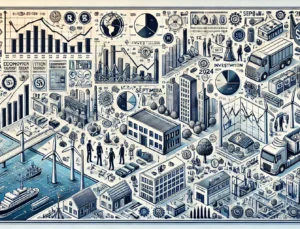Following the Industrial Revolution, which profoundly transformed Europe in the 18th century, the rise of imperialism left deep marks not only in colonized territories but also within European societies. Vocational-technical education became a tool of imperial interests, significantly weakening not only individuals’ cultural identity but also the social fabric. While Europe later began to reclaim its humanitarian values and traditions, America developed into a hub of individualism and an imperial mindset.
Vocational-Technical Education and Social Disintegration in Europe
With the Industrial Revolution, vocational-technical education gained importance in Europe. However, this education primarily served economic interests rather than the cultural and intellectual development of individuals. The focus on production narrowed the educational system, restricting individuals to develop skills based on functional requirements.
This shift led not only to individuals becoming alienated from their cultural identity but also to the erosion of social cohesion. Traditional crafts and community-oriented work models were pushed aside by industrial division of labor and mass production. As people became distanced from their work, they also grew disconnected from each other. In this process, Europe increasingly neglected its cultural roots, and social bonds within society weakened.
Imperialism and Europe’s Alienation from Its Own Values
With the rise of imperialism, not only the colonies but also European societies experienced cultural decline. Vocational-technical education became increasingly focused on meeting the needs of the imperial market, reducing individuals to mere tools of economic interests. Culture and personal growth took a back seat, leading to a gradual estrangement from Europe’s own traditions and values.
However, in the 20th century, particularly after the two World Wars, Europe began to reconsider its path. Following the devastating consequences of imperialism, European societies started to re-embrace their humanitarian values and traditions. The welfare state and a new educational policy that promoted both vocational and cultural development gained prominence. Europe aimed to preserve its cultural identity while fostering education that emphasized human rights and individual freedoms.
America: The Rise of Individualism and Imperialism
While Europe reclaimed its humanitarian values, America took a different direction. After the American Revolution, the country placed great emphasis on individual freedom and entrepreneurship. Yet, this focus on freedom gradually transformed into the promotion of selfishness and an imperialist mindset. Vocational-technical education in America was primarily designed to shape competitive, economically successful individuals, with little regard for social solidarity.
American imperialism, similar to the European model of the 19th century, led to a society where individuals focused primarily on their own economic interests. Collective values and cultural bonds took a back seat, while individualism and economic competition became dominant in American society.
Conclusion: The Divergence Between Europe and America
The industrial and imperial developments in Europe and America resulted in significant differences in the societal structures of both continents. While Europe, after a long process of alienation, returned to its humanitarian values and cultural traditions, America intensified its individualism and competition-focused educational policies.
Today, Europe emphasizes social justice and cultural solidarity, while America prioritizes individual success and economic achievement. These contrasting approaches continue to shape the social and educational landscapes of both regions.
 02:00
02:00




 News
News
 Ekonomi
Ekonomi
 Ekonomi
Ekonomi
 Ekonomi
Ekonomi
